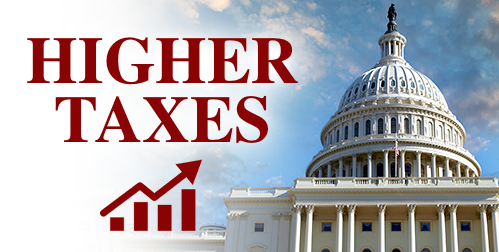The current administration has pledged not to raise any form of tax on anyone making less than $400,000 per year.
But the economic proposal made by President Biden to fund his $3.5 trillion spending package underlines tax increases and fees that would hit Americans well below the top 1.8% of income earners.
They’ve been vocal about their intent to increase taxes on the wealthy, but the proposal may actually lead to increased taxes on all Americans, working families, and small businesses.
The truth is that inflation isn’t the only factor we have to fear when it comes to the erosion of our savings.
Carbon Tax
In an effort to put America on a path to 100% carbon-free electricity by 2035 and net-zero greenhouse gas emissions by 2050, the Biden administration is proposing a new “carbon tax.”
Imports from other countries that are not reducing their own emissions would be faced with the tax. The outcome may undoubtedly impact the entire US economy by making it more expensive to heat homes, cook, and eat.
Based on an economy-wide analysis, the natural gas tax could reduce our GDP by $9 billion and result in 90,000 jobs lost.
Even Senate Democrats have admitted that the tax would affect lower-income Americans and that, “each option would be paired with rebates or other direct relief for low-income taxpayers.”
Plastic Excise Tax
If the administration imposes a national plastic tax to finance their trillion-dollar package, the $.20 per proud fee on the sale of virgin plastic could hit every consumer in the form of higher prices for everyday household goods.
Large companies will more than likely see the direct effect of this. But when companies are hit with higher fees, they pass those fees along to their consumers by increasing the cost of their goods.
Americans are already seeing higher prices. In April of this year, the hike in consumer prices was the highest since the Great Recession.
CNBC’s host of Mad Money, Jim Cramer, made news recently stating that:
“Gold has scarcity value and proven its worth over time… I regard gold as an insurance policy against long-term inflation.”
He also praised the precious metal as having value for its timelessness, calling gold absolutely essential.
With inflation rising to levels higher than what the Fed considers to be “healthy,” we cannot help but think of a similar time, between August 1976 and January 1980, when inflation was also running rapidly, and gold prices increased by over 700%.
No one enjoys increased taxes, a higher cost of goods, and a more expensive cost of living, but we do have options to fight back.
Call American Hartford Gold today at 800-462-0071 to learn how thousands of Americans are preserving their wealth with assets like gold.






